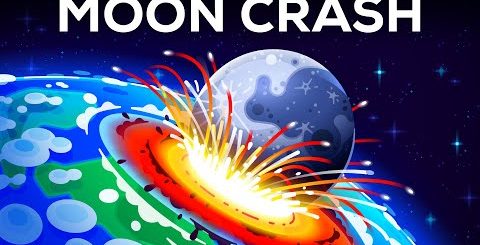The 4 things you need to be an expert
Which experts have real expertise? This video is sponsored by Brilliant. The first 200 people to sign up via https://brilliant.org/veritasium get 20% off a yearly subscription.
▀▀▀
Chase, W. G., & Simon, H. A. (1973). Perception in chess. Cognitive psychology, 4(1), 55-81. – https://ve42.co/chess1
Calderwood, R., Klein, G. A., & Crandall, B. W. (1988). Time pressure, skill, and move quality in chess. The American Journal of Psychology, 481-493. – https://ve42.co/chess2
Hogarth, R. M., Lejarraga, T., & Soyer, E. (2015). The two settings of kind and wicked learning environments. Current Directions in Psychological Science, 24(5), 379-385. – https://ve42.co/Hogarth
Ægisdóttir, S., White, M. J., Spengler, P. M., Maugherman, A. S., Anderson, L. A., Cook, R. S., … & Rush, J. D. (2006). The meta-analysis of clinical judgment project: Fifty-six years of accumulated research on clinical versus statistical prediction. The Counseling Psychologist, 34(3), 341-382. – https://ve42.co/anderson1
Ericsson, K. A. (2015). Acquisition and maintenance of medical expertise: a perspective from the expert-performance approach with deliberate practice. Academic Medicine, 90(11), 1471-1486. – https://ve42.co/anderson2
Goldberg, S. B., Rousmaniere, T., Miller, S. D., Whipple, J., Nielsen, S. L., Hoyt, W. T., & Wampold, B. E. (2016). Do psychotherapists improve with time and experience? A longitudinal analysis of outcomes in a clinical setting. Journal of Counseling Psychology, 63(1), 1. – https://ve42.co/goldberg1
Ericsson, K. A., Krampe, R. T., & Tesch-Römer, C. (1993). The role of deliberate practice in the acquisition of expert performance. Psychological Review, 100(3), 363. – https://ve42.co/anderson3
Egan, D. E., & Schwartz, B. J. (1979). Chunking in recall of symbolic drawings. Memory & Cognition, 7(2), 149-158. – https://ve42.co/chunking1
Tetlock, P. E. (2017). Expert political judgment. In Expert Political Judgment. Princeton University Press. – https://ve42.co/Tetlock
Melton, R. S. (1952). A comparison of clinical and actuarial methods of prediction with an assessment of the relative accuracy of different clinicians. Unpublished Ph.D. thesis, University of Minnesota.
Meehl, E. P. (1954). Clinical versus Statistical Prediction: A Theoretical Analysis and a Review of the Evidence. University of Minnesota Press. – https://ve42.co/Meehl1954
Kahneman, D. (2011). Thinking, fast and slow. Farrar, Straus and Giroux. – https://ve42.co/Kahneman
▀▀▀
Special thanks to Patreon supporters: RayJ Johnson, Brian Busbee, Jerome Barakos M.D., Amadeo Bee, Julian Lee, Inconcision, TTST, Balkrishna Heroor, Chris LaClair, Avi Yashchin, John H. Austin, Jr., OnlineBookClub.org, Matthew Gonzalez, Eric Sexton, john kiehl, Diffbot, Gnare, Dave Kircher, Burt Humburg, Blake Byers, Dumky, Evgeny Skvortsov, Meekay, Bill Linder, Paul Peijzel, Josh Hibschman, Timothy O’Brien, Mac Malkawi, Michael Schneider, jim buckmaster, Juan Benet, Ruslan Khroma, Robert Blum, Richard Sundvall, Lee Redden, Vincent, Stephen Wilcox, Marinus Kuivenhoven, Michael Krugman, Cy ‘kkm’ K’Nelson, Sam Lutfi, Ron Neal
▀▀▀
Written by Derek Muller and Petr Lebedev
Animation by Ivy Tello and Fabio Albertelli
Filmed by Derek Muller and Raquel Nuno
Additional video/photos supplied by Getty Images
Music from Epidemic Sound (https://ve42.co/music)
Produced by Derek Muller, Petr Lebedev, and Emily Zhang








The pattern recognition became very clear to me when I learned Morse code. The human brain takes 50 milliseconds to process and understand a sound. People regularly send and receive Morse code at 30 words per minute, which puts the dit character and the gap between all characters at 40 milliseconds. So you literally have to process sounds faster than the brain can recognize them. Over time you start to hear whole words in the code rather than individual letters, but you still have to decode call signs character by character. You basically cache the sounds in your brain without processing them, and once the whole set of characters passes, your brain is able to turn it into an idea and add it to the stack of previous ideas while your ears are already caching the next set of characters.
@Joe Murphy About driving – Yes! Computers are very fast and very accurate, but there is no self-driving car yet that performs like a human.
@Karl-Konrad Klotzkopf Sorry – I write my response to another post before reading yours.
too long not reading
@anteshell When we listen to spoken language (conversation, TV, radio, etc), we have the same thing – at some level, we must understand individual words, but they all stream into sentences, and we recognise whole phrases. It’s more interesting when reading, though, because we can stop in mid-sentence and think about things. We cn raed wrods tht are raely bdaly wrtin as lnog as tehy strat and end wtih the rhgite lteter, but if you’re reading a passage that has a word in it that you have never come across before – perhaps a medical word – then you have to stop and spell it out letter by letter to find out what it is. You can’t read it fluently, so0n reading a word is a matter of recognising it.
Wow, great
Wow, this was incredibly insightful!
a
F
Lichess OP
Where chess gang at bois
lichess is better
This was incredibly timely and it expounded on a principle I learned only recently. When you practise something and get frustrated, as we all do, that is **not** the time to pause. That chord you can’t quite play, the card trick you can’t quite nail – keep at it for five more minutes and tell yourself this deliberately. I think this is also what the fourth point in the video is about, because in those ‘five more minutes’, you are at the bleeding edge of your skill and that is precisely when you grow.
@Viral Patel I have experienced what what I think they might be trying to describe, though I might describe it more as a logical lockup, the wall where you don’t know what you *could* do differently. It is more to help reset assumptions, get back to the floor of the rock-face you got stuck on so you can try tackling it from the start again. (I also have ADHD) I suppose it might also be of note that not all frustration is the same.
I don’t get frustrated when learning because I’m not predisposed to be an emotional id**t. Actually, a lot of people don’t get frustrated. I have plenty of friends that skateboard, and only 2 of them get frustrated when they cannot do something. Everyone else just keeps doing it until they end up doing tre flips and what not
I also never got frustrated when i taught myself how to play guitar; I just did it.
But your point beyond that is super obvious; no crap you learn more when you keep practicing instead of just giving up at the first sign of resistance
@Viral Patel i was talking about being frustrated/mad over not being able to achieve something, that’s different to just being tired
@Tinchozz that just simply crazy… Your brain works based on freshness It’s just an excuse to me…. Because I simply never experienced that when it comes to brain resources demanding tasks….. Everyday is same but how you take it is different…. I never experienced brain tiredness maybe because I have ADHD lol
As with everything in life, mind, body, and soul.
Flashcards, weights, and prayer
I can watch this video multiple times, great job Derek and team!
As any of his videos honestly
I really noticed this pattern rec in chemistry for me. I high school I had basic chemistry and saw my friends having to learn all the proteinogen amino acids that had biology as a selective class there and couldnt fathom how they would memorize all of these structures. Now I’m in my second year of my chemistry bachelor and learnt all of these structures in 2 hours yesterday because I could easily recognize patterns and categorize them in a way that was way easier to remember than just random atoms at random points.
@Pug Dad experts look at stuff that most students don’t even know exist, just because basic chemistry is difficult to you doesn’t mean that an expert also needs to look up those things, they’re far too busy actually researching on ground breaking NEW ideas, that’s why experts are called “experts”, this isnt a tough concept to grasp lmao.
I love reading all these comments; like “NO CRAP LOL.” Rote memorization is for oafs
@Fan Ban you are not an expert if you have to look up basic stuff in your chosen subject
@Pug Dad I mean on the context of video where Magnus doesn’t need google to know which game is that board state was. Hence, “expert” (later explained in video: repetitive practice,… Etc.)
@Farrel Rafi experts always look up stuff. What expert doesn’t look up stuff from their own fields? And they would have to search for knowledge because someone else might have discovered something new or something that we thought we knew.
This is why, when assessing world events, I always think to myself, “Is this a special time in history? Or am I trying to make myself more important than I am?” People like to say there are many patterns you can find in history, which is true, having a good understanding of the historical context allows for better comprehension of what is happening in the present. But we cannot allow ourselves to think one of these ways exclusively. We cannot just apply the exact lessons from the past but we cannot completely ignore it either. That is why the future is always uncertain.
The future is uncertain because you have 8 billion HUMAN MINDS ALL INTERACTING
did the sun come up when WW2 started? OH NO! “there are many patterns you can find in history” its only true if the “patterns” happened only before the historical events, but no one writes a history book about that day in which nothing happened, so we dont know if those “patterns” were present.
@rubiks6 Um cool dude. Believe what you want to believe but I’m an atheist. Seems like a cool story tho.
@deadpxn what I mean is that people like to make the present, and in extension themselves, the most important thing to ever happen. News outlets constantly talk about how now we have the coldest, hottest, strongest, most dangerous stuff, which is true to some extent, but I sometimes feel like this is just “main character syndrome.” This also has negative effects on peoples’ and especially the youth’s mental health (all that existential dread.) But just imagine in 100 years, people could be seeing this time like how we see the 1920s. Just another period of history where humans adapted. Then there’s the complete opposite view which says that this is a crucial moment in human history. We can’t just dismiss this time, as unlike other species, our rise to the top and reign is very short evolutionarily speaking. So this is a new frontier for life on this planet. Personally, still deciding.
I always tell my peers who take on art, that the fastest and most quality improvement you can make is by doing something new. New method, technique, and style. I’m glad that advice works across all fields.
Must be why I learn so fast; I learned skateboarding, guitar playing, piano, violin, mathematics, physics, chemistry, biology, philosophy, art (specifically hyper-realistic pencil drawing) all within 2 years in college, and to a highly skilled level
Even though my majors were physics and mathematics, I cannot stand these types of people and enjoy hanging out with artists, music makers (guitar players, pianists especially) and people that do sports
Totally agree. I am doing art, and it’s easy to get stuck on what you have got used to, but that doesn’t get you any closer to where you may want to be.
What’s your field? Art, or something else?
I am so glad you put deliberate practice into this. It’s the most important thing we can do to improve. Learning from people who are better or think differently is invaluable. Trying and failing is something we have to normalize. I call it “failing my way to victory”. I attempt something new and difficult and keep trying and learning until I get the best result possible.
Of course, it has to be a valid study, and trying and failing at something that’s truly random is an effectively worthless endeavor.
I call it Fail Forward, no time to go backwards, we just power our way through the problems to victory! I’m a software dev and gigging drummer and it applies to both
For learning to be an expert, other aspects are important. Ongoing curiosity. Constant questioning. Intentionally working to ‘break’ what you ‘know’. Exploring all sorts of topics unrelated to your chosen field. The ability to see similarities across disciplines and fields to then use insights from each to challenge the others. A lack of fear of failure while still working to avoid it. Understanding limits of knowledge. Knowledge of fallacies and logical failings of all sorts. Etc…. And not only to be prepared always to chuck what you thought you knew, but to actively look for how you actually got “it” wrong, even though you think you got “it” right. That involves constantly looking for new solutions to old problems, new ways to solve old problems, and with all of those searching for flaws in your knowledge, or perception. Challenge perception and existence themselves. Challenge the fundamentals – always.
For example, we have “known” since Einstein that gravity doesn’t exist. It isn’t a force. It is the observed relationships that fall out of applying Newtonian motion in curved space time. The ‘force’ relationships are relationships only because they are artifacts required by the geometric construct of space time combined with conservation equations. And this doesn’t just apply to gravity.
We develop shorthand’s for what we think we know, even with “firm” equations like the gravitational field equation. And then we neglect to challenge our beliefs. We then get stuck..
When we learned about DNA we concluded that knowledge could not be passed down from parent to child genetically. Only now much later looking at methylation, acetylation, phosphorylation and more do we realize that epigenomics, proteinomics, and other means exist to code information through a lifetime and to then have that information passed on to progeny by changes associated with the genome, while not changing the genome itself.
We learned that bacteria and other organisms extend tubules between one another and ‘share’ plasmids and other bits of programming and information across enormous evolutionary boundaries so that each may gain from competing with and simultaneously sharing with others. E..g. Antibiotic resistance.
We learn that a massive fungal network exists and pervades the biosphere swapping nutrients, water, minerals and much more. We do not even know the bounds of that yet.
Through out it all, we learn that we know, actually know, much less than we thought we did.
Well said. I would like to add “interest”. You’ve covered much of which describes interest very well. But it’s also a purpose or drive in itself and can be brought about by an outside purpose or drive.
Socrates: “I know only one thing: that I know nothing.”
Up
I use to be a hockey goaltender, the pattern recognition part of the game never crossed my mind until now. I remember when the play was developing in the corner of the ice on my end and being able to keep track of everyone else on the ice seemed impossible when I was younger, but after time it got easier and easier and it seems like this pattern recognition of being able to quickly glance over and notice the patterns on the ice allowing me to gather info much quicker than looking over 3 or 4 times. It was a hugely important skill as a goaltender and watching this video just kind of made me chuckle about it.
I can attest that I had the same experience as goalkeeper in soccer. As a kid, I just waited for the shot to come, then reacted. When I was a decade older and slower, I realized that players have tendencies and will try to set up the play to their preferred shot.
I believe hockey is one the best sports for developing situational awareness. Things happen at a rapid pace in a small environment compared to other sports such as soccer. Players like Marner and Gaudreau are experts at seeing the whole ice and things developing before other players do. Their smaller size probably helped them with this skill as they would have to be vigilant of the bigger players lest they suffer devastating checks.
As an other goalie the big one that I can think of is reacting to shots. I used to be able to tell where the shot was going before the puck was actually released. And the time for me to react to a shot included the wind up time. And I hated it when it was a knucklepuck or they fanned on it because it totally threw me off. That’s why my advice to forwards is always to get a quick release because it removes my time to process/predict the shot.
@NO NO do you think this could be why they call it “beginner’s luck”
This is why sometimes it is more difficult to play against a bad player. They just aren’t in the right spots they are supposed to be in. Of course once you learn they are trash it is easier but initially they can get some lucky points.